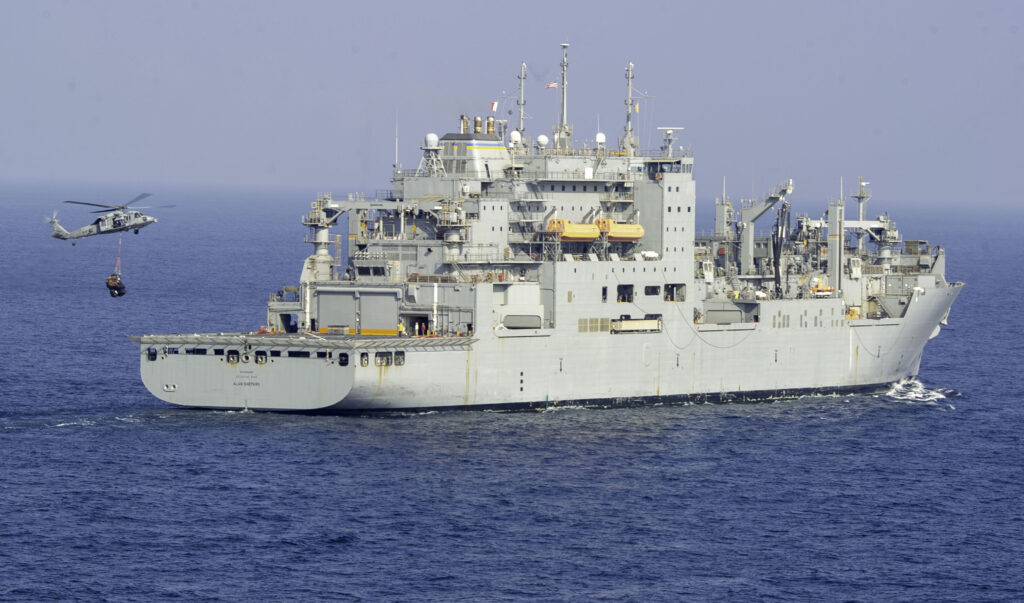(WASHINGTON) — A U.S. Navy cargo ship ran aground in Bahrain in 2023 almost immediately after its top officer left the bridge to eat dinner, Stars and Stripes reported.
The decision by the master of USNS Alan Shepard to leave the bridge and place a junior officer in charge was one of the key reasons for the ship’s grounding, according to a recently released summary of an investigation by U.S. Naval Forces Central Command (NAVCENT). The incident last year on July 15 left Alan Shepard stuck in the shoals for more than seven hours but caused only minor paint scratches on the hull and left no one injured, the investigation said.
Alan Shepard, launched in 2006, transports dry cargo and ammunition and has accommodations for more than 120 people. The ship is crewed by civilian mariners licensed by the U.S. Coast Guard.

The ship had 85 crewmembers aboard during the grounding. Alan Shepard was moving to a pier at Khalifa Bin Salman Port in Bahrain to complete repairs to one of its marine diesel generators, NAVCENT’s investigation summary said.
Bahraini port authorities told the crew to wait for a harbor pilot to guide them into the pier, the summary said. The ship transited toward a designated waiting area. At 4:49 p.m., the master of the ship handed control to the third officer, told him to stay the course and keep the ship within the waiting area. The master, the navigator and the chief mate all then left the bridge to eat dinner, according to the findings.
The third officer navigated the ship into the waiting area but became distracted by a fishing boat, the report said. He turned the ship to the right to avoid the fishing boat, but in doing so ran Alan Shepard into the nearby shoals. Roughly 20 minutes separated the ship’s master leaving the bridge and Alan Shepard running aground.
The investigation blamed the grounding on officers failing to follow navigation procedures and the ship’s master not being present on the bridge as required by policy, the summary said. The ship’s standing orders said the master is supposed to be on the bridge near shallow waters, such as those in Bahrain.

